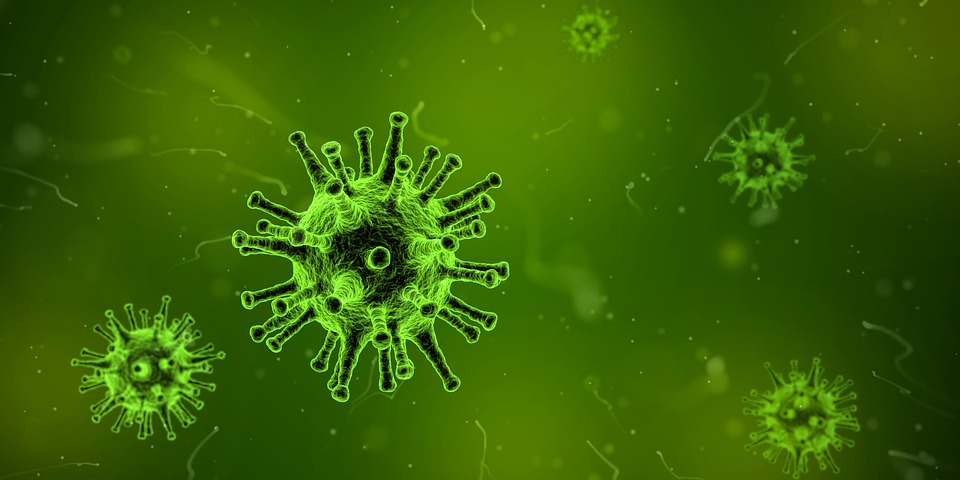Are you feeling sick without any reason? Have you been ill due to any kind of activities? There are a lot of things that could make us feel ill. As a matter of fact, it’s better that you feel different sometimes because you know that your immune system is at work. What’s really the difference? How can you tell if you’ve been hit by a cold or flu?

Both conditions will make you feel unwell. Moreover, both are respiratory infections that are mainly caused by viruses. Their symptoms are similar, almost the same so it’s kind of difficult to tell what hit you. If you really want to know, though, there are certain distinctions on why you might be experiencing these. Moreso, knowing what exactly hit you can help you treat whatever it is faster. However, it’s better to just avoid the virus totally so you don’t have to worry about it anymore.
Are these two that serious?
Honestly speaking, both of them are common and almost all people get hit by it. Although colds could be a nuisance to your daily routines and don’t really last long, the flu could be less annoying but has more serious effects and damages. In the year 2015 to 2016 alone, the flu made 11 million patients visit the hospital, 308, 000 hospital visits, and overall 12, 000 deaths. Yes, flu can lead to d***h especially if it’s not attended.
Read: Subtle Symptoms of Vitamin C Deficiency You Most Often Overlook
Although both conditions can be overcome and treated in a week or two, it’s still better to consult your medical practitioner to see how you can get better in the best and fastest way.
Therefore, we can tell that having the flu can be more dangerous than having a common cold. However, it’s still not right to disregard a common cold as it can be a pathway to more serious diseases.
Cold or flu? What are the differences?
In this table, we will be dictating what the differences between a cold and the flu in order for you to know which medications you should take, how you should rest, and what you need to do in order to avoid it next time. In addition, you can also initially see what you’re experiencing firsthand.
| Common Cold | Flu | |
| Headache | Not so often | Usually |
| Sore throat | First two to three days | Not all the time |
| Muscle pain | No muscle pain | Mild to severe muscle pain. Happens usually |
| Nasal signs and symptoms | Runny nose with clear fluid which thickens over a week. | Congested sometimes |
| Appetite | Swallowing can be painful so you lose appetite. | Swallowing can be painful so you lose appetite. |
| Fever | Rare | Most common symptom. Around 37.6 to 38.3 in Celsius. |
| Fatigue | Mild fatigue sometimes | Extreme exhaustion during the first few days |
| Respiratory status | Coughing. Mildly tight chest feeling | Common coughing but can lead to pneumonia. |
What are the main things that you can notice that would make you distinguish one from another?
Generally, the common cold goes over fewer days than the regular flu. In most cases, they get better around 7 to 10 days but the symptoms could last up to two (2) weeks. The flu, however, can come unexpectedly and can hit you hard. Sometimes, you’ll just wake up feeling no better and when you experience that, it’s probably the flu. It lasts somewhere around a week or two and the symptoms go away after about 5 to 7 days.
The common cold is caused by many different viruses. There are a lot of many different myths about this; one common myth is that it’s not curable by any medication. Why? Because over a hundred viruses can cause you to be infected. A lot of people have the misconception to take antibiotics when the common cold hits them; do not do this because it’s just a viral infection, not a bacterial one.
The flu, however, is caused by the influenza virus, targetting the upper respiratory tract. Since the flu is caused by fewer viruses, it can easily be countered and treated. Seasonal flu is caused by influenza A, B, and C and new vaccines are made to ensure better and faster recovery.
How does it spread?

This question is easy; since both of them are viral infections, it can spread from one person to another by coming into contact with droplets from an infected person. In both conditions, infected people are the most contagious from the first day of being infected up to five (5) to seven (7) days of being sick.
The flu is slightly more difficult to cure because the person might feel weaker and might have lesser energy. In the case of young children, the elderly, and the disabled, you might have a bit of trouble in treating it. While the common cold, just a particular amount of rest, sufficient water, and proper medications can be enough for a full treatment.
Read: What Would Happen If We Replace All Drinks With Water?
How do we treat the common cold?
Treating the common cold can be done easily. Over-the-counter medications like antihistamines, acetaminophen, decongestants, and NSAIDs can successfully relieve the congestion and the annoying impacts of the common cold.
Partner that up with a sufficient amount of rest and a good habit of drinking water, expect the common cold to be away from you in less than a week.
Then, how do we treat the flu?
In a totally different scenario, treating the flu could require more effort and observation than treating the common cold. Although treatment progress will greatly be sped up by a sufficient amount of water and rest, we all need to know that flu treatment would require the influenza virus to be k****d or to be disabled.
Physicians and general medicine doctors would often ask you when you started noticing the symptoms. There are extremely effective medications but would only work if the virus has been alive for 48 hours or less. However, commonly, you may be asked to take paracetamol or ibuprofen to relieve the pain and other symptoms that it gives.
How do we prevent either the cold or flu?
Of course, ensuring that you have a healthy immune system is one thing, drinking a lot of water is another, and taking care of your overall health is the last. You need to make sure that your body is getting enough nutrition that would assist you in your daily viral battle. At any given time, these conditions can attack you. What’s a more effective and better way to prepare than to enable your body to naturally fight against these viruses?
Read: Headache? The Differences of Tylenol, Aspirin, Advil, and Aleve Gathered!
Eat fruits and vegetables, exercise regularly, sleep well, and make sure you drink a lot of water. A common cold or flu can be common and can be a light infection, but people often think of it just that way. They fail to think that these can actually elevate to more serious conditions and can even be worse than what we think of it.

